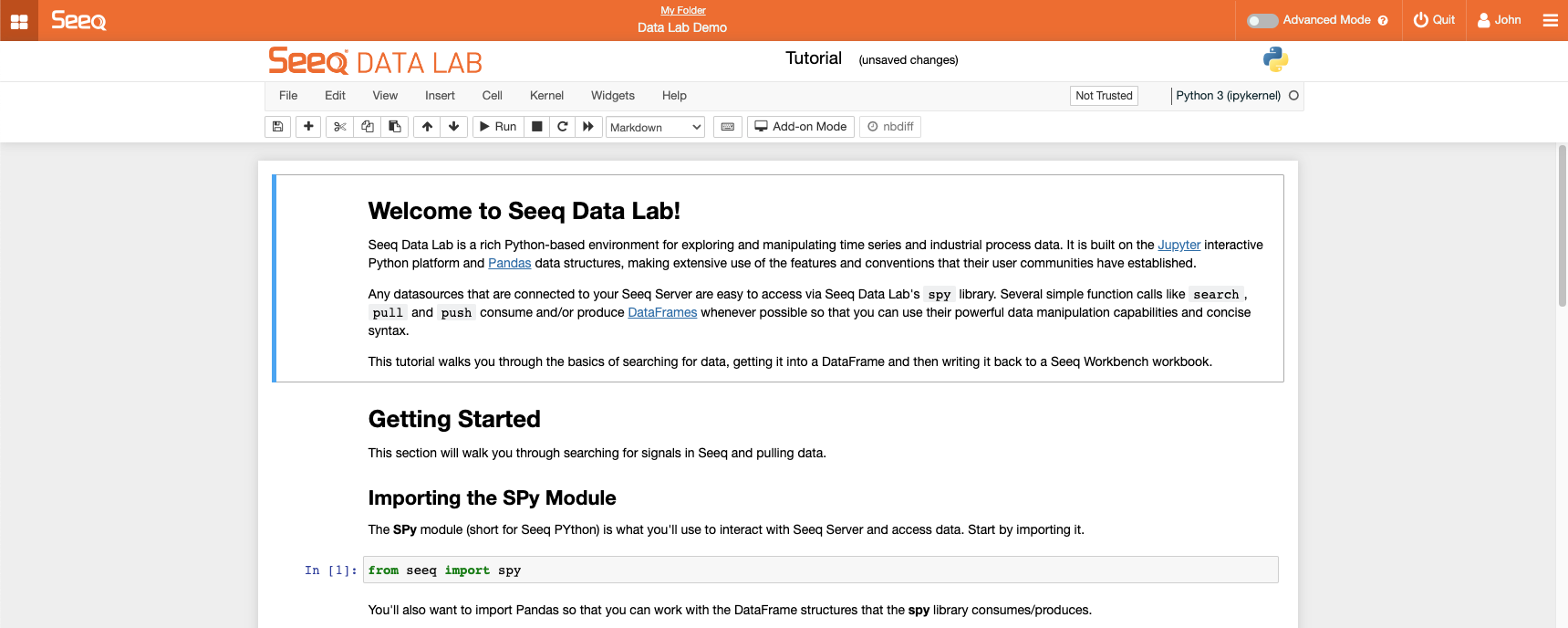Seeq Data Lab
Default Python Version Update
Python 3.8 is end of life as of October 7, 2024, meaning it will no longer receive security updates or bug fixes.
We hope to continue offering Python 3.8 in Data Lab through the end of 2024. However, if any issues arise, we may be required to discontinue support earlier than anticipated.
We strongly encourage you to update your projects to Python 3.11, which will become the default version, to ensure continued security and compatibility.
Compatibility Testing is Crucial: It's vital to thoroughly test your existing scripts with Python 3.11 to identify and address any potential compatibility issues. This proactive approach ensures a smooth transition and prevents disruptions in your workflow.
Please see Data Lab Python 3.11 Compatibility Guide for more information
What is Seeq Data Lab?
Seeq Data Lab is a service that brings together Jupyter notebooks, which is a web application that combines a Python REPL and Markdown, with the Seeq API. This enables users to create Python-based Notebooks and use the custom SPy library (see documentation) that we distribute, to push, pull and manipulate data using Seeq and then develop reports and visualizations using that data.

